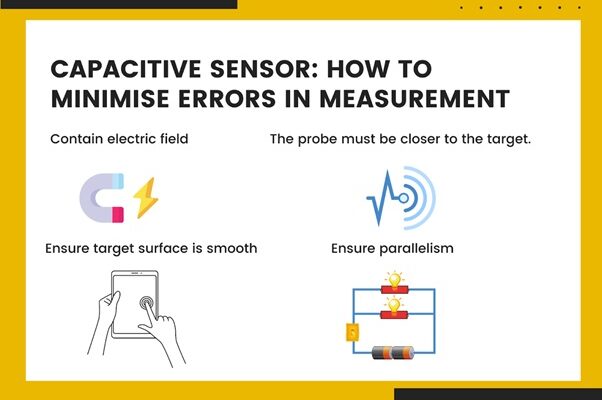As its name implies, a capacitive proximity sensor operates by detecting changes in the capacitance of the environment measured by the sensor. It is also called a capacitive sensor, where the amount of the capacitance affects the distance and the size of the objects it needs to measure. Like a vision sensor, it also works with multiple sensing capacities.
However, you can only obtain accurate measurement in an operating environment if you effectively utilise a capacitive proximity sensor. Here are tips you can apply.
Contain electric field
Voltage is delivered to the detecting area of a capacitive sensor to detect changes in capacitance. Electromagnetic fields must be contained in a small space between probe and target to obtain reliable readings.
The probe must be closer to the target.
The error increases when the probe no longer measures a level surface and when the distance used differs from the original calibration. Therefore, to achieve accurate data from a capacitive proximity sensor, the probe should be placed closer to the object to reach a similar zero point. An RFID system also works to detect the arrival of a pallet where it reads accurate identification code.
Ensure target surface is smooth
When the area you are using a capacitive sensor is not smooth, the measurement value can shift. If the irregularities on the surface are symmetrical or not, this inaccuracy might be relatively significant in terms of magnitude.
Ensure parallelism
Probes and targets that tilt significantly alter the interaction of their fields with the target by elongating the area where the field impacts. A capacitive sensor will make inaccurate measurements because of the differing behaviour of the electric field. You may also consider the use of an acceleration sensor in sensing a change in electrical capacitance.
Choose the known pioneer and innovator in the field of industrial sensors like Pepperl+Fuchs Asia. Experience reliable solutions and automation integrated for your applications.




